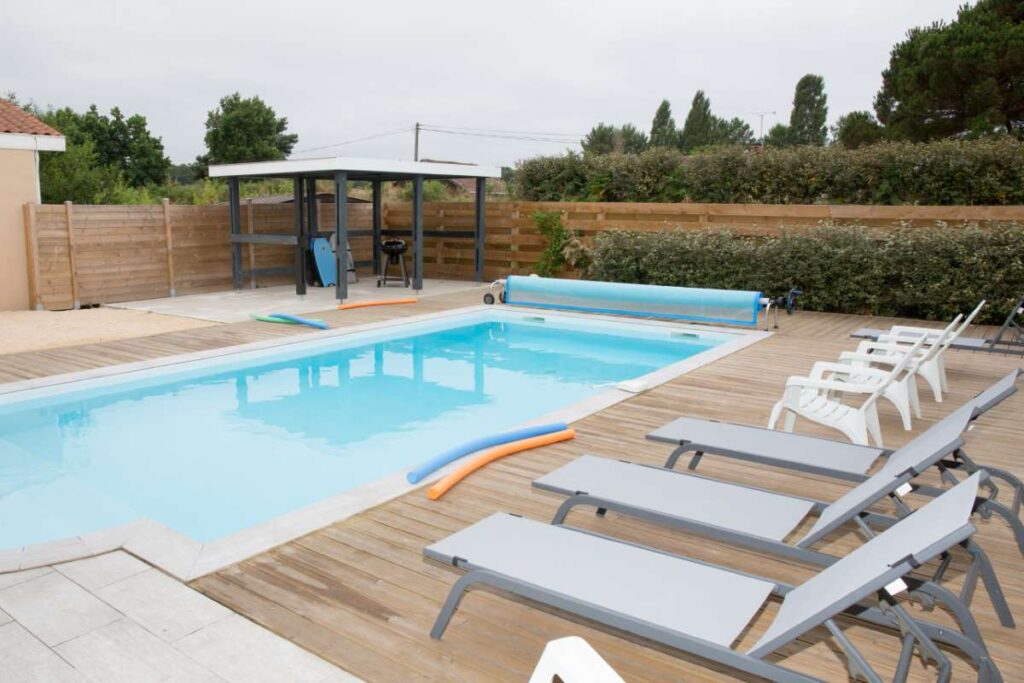Goal-Setting Techniques for Pool Service Managers
Goal-setting is a critical component in the success of any business and is especially vital for pool service managers who must navigate a landscape filled with unique challenges and opportunities. In this article, we will delve into effective goal-setting techniques tailored for pool service managers. We will explore the importance of setting actionable goals, methods for tracking progress, and how to motivate teams towards achieving these objectives. By the end of the post, readers will have actionable insights that can be implemented immediately to enhance operational efficiency and business growth.
Setting clear and actionable goals is essential in the busy world of pool service management. From scheduling maintenance visits to managing customer relations, the demands on pool service managers are significant. With well-defined goals, managers can streamline operations, ensure high service quality, and foster client satisfaction. In this blog post, we will cover various goal-setting techniques that can help pool service managers achieve these objectives, including SMART goals, the OKR method, and the importance of continuous evaluation.
Understanding SMART Goals
The SMART criteria is a well-established framework that helps individuals and teams formulate effective goals. SMART stands for Specific, Measurable, Achievable, Relevant, and Time-bound. For pool service managers, adopting this technique can significantly enhance the clarity and focus of their objectives.
For instance, instead of setting a vague goal like “improve customer service,” a SMART goal would be “increase customer satisfaction ratings from 80% to 90% over the next quarter by implementing a customer feedback system.” This goal is specific, measurable, achievable, relevant to the overall business strategy, and has a clear timeline.
To implement SMART goals effectively, pool service managers should regularly review the progress towards these objectives. Tools such as the [Pool Biller Software](https://ezpoolbiller.com/) can be invaluable in tracking service performance and customer feedback, making it easier to adjust strategies as necessary.
Utilizing the OKR Method
The OKR (Objectives and Key Results) method is another powerful goal-setting technique that can drive focus and alignment within pool service teams. This approach allows managers to set ambitious objectives while defining key results that measure success. OKRs work effectively in dynamic settings like pool service operations, where adaptability is crucial.
For example, a pool service manager might set an objective to “expand service coverage area” with key results such as “acquire 15 new clients in the new territory by the end of Q2” and “achieve a minimum service rating of 4.5 stars for new clients.” This method encourages teams to stretch their capabilities and fosters a culture of accountability.
Using software tools designed for pool service management, such as the [best software for pool companies](https://ezpoolbiller.com/), can help managers track their OKRs efficiently. These tools can provide real-time updates on client acquisition and service ratings, ensuring teams stay aligned with their objectives.
Establishing Priorities and Action Plans
Once goals are set, establishing priorities and action plans becomes vital. Pool service managers often juggle multiple responsibilities, making it essential to prioritize tasks that align with their goals. Utilizing a priority matrix can help managers evaluate tasks based on urgency and importance, ensuring that focus remains on actions that drive business success.
For example, if the goal is to reduce service response time, managers might prioritize training sessions for technicians, optimizing route schedules, and utilizing a scheduling software for pool service. This structured approach helps in allocating resources effectively and ensures that everyone is working towards common goals.
Moreover, tools like the [pool billing software](https://ezpoolbiller.com/) can assist in automating routine tasks, enabling managers to dedicate more time to strategic planning and team development. By utilizing these resources, pool service managers can enhance operational efficiency and improve service delivery.
Encouraging Team Engagement and Motivation
Effective goal-setting extends beyond individual objectives; it involves fostering a culture of collaboration and motivation among team members. Pool service managers should strive to create an inclusive environment where team members feel empowered to contribute to the company’s goals.
Regular team meetings to discuss progress, celebrate achievements, and troubleshoot challenges can enhance team cohesion. Managers can also implement incentive programs that reward team members for achieving collective goals, such as bonuses for positive customer feedback or increased service efficiency.
By cultivating a motivated workforce, pool service managers can drive performance and ensure that team members are engaged in their roles. Recognizing individual contributions within the broader context of team goals fosters a sense of ownership and accountability.
Tracking Progress and Adapting Strategies
To ensure that goals are met, tracking progress is crucial. Pool service managers should regularly assess their performance against the established metrics and timelines. Using reporting tools within management software, such as the [swimming pool service software](https://ezpoolbiller.com/), can offer valuable insights into service delivery, client satisfaction, and operational efficiency.
Moreover, tracking progress allows managers to identify areas that require adjustment. If a service target is not being met, a manager may need to revisit strategies, allocate additional resources, or provide further training to the team. This adaptability is essential in maintaining high service standards in a competitive market.
Continuous evaluation not only helps in achieving current goals but also lays the groundwork for future planning. By learning from past outcomes, pool service managers can set more informed and realistic goals moving forward.
Implementing Technology for Enhanced Goal Achievement
In today’s digital age, technology plays a significant role in streamlining operations and achieving business goals. Pool service managers can leverage various software solutions to improve efficiency, enhance communication, and drive accountability within teams.
For instance, using a pool route software allows managers to optimize technician schedules, ensuring timely service delivery. This not only improves customer satisfaction but also enhances productivity as technicians spend less time traveling and more time servicing pools. The integration of technology can be a game changer in achieving operational goals.
Additionally, the use of analytics tools can provide managers with detailed insights into client preferences and service trends. By understanding what services are most valued by customers, managers can adjust their offerings to better meet market demands.
Creating a Culture of Continuous Improvement
Goal-setting should not be a one-time activity; instead, it should evolve into a culture of continuous improvement. Pool service managers should foster an environment where feedback is encouraged, mistakes are viewed as learning opportunities, and innovation is embraced.
Conducting regular reviews of goals and performance can help teams stay aligned and motivated. Implementing feedback loops allows for real-time adjustments, ensuring that the service offering remains relevant and competitive.
Furthermore, investing in training and development opportunities for team members can enhance skill sets and improve service quality. By empowering employees to grow within their roles, managers can create a more skilled and adaptable workforce that aligns with the company’s goals.
Conclusion
Goal-setting is an essential practice for pool service managers, allowing them to navigate the challenges of the industry while driving operational efficiency and client satisfaction. By employing techniques such as SMART goals and the OKR method, establishing actionable plans, and leveraging technology, managers can enhance their effectiveness.
Ultimately, fostering a culture of motivation, continuous improvement, and accountability will not only help achieve current objectives but will also pave the way for future success. For pool service managers looking to streamline their operations and improve billing efficiency, tools like [EZ Pool Biller](https://ezpoolbiller.com/) can be invaluable in supporting these efforts. Embrace these techniques today to elevate your pool service business to new heights.




